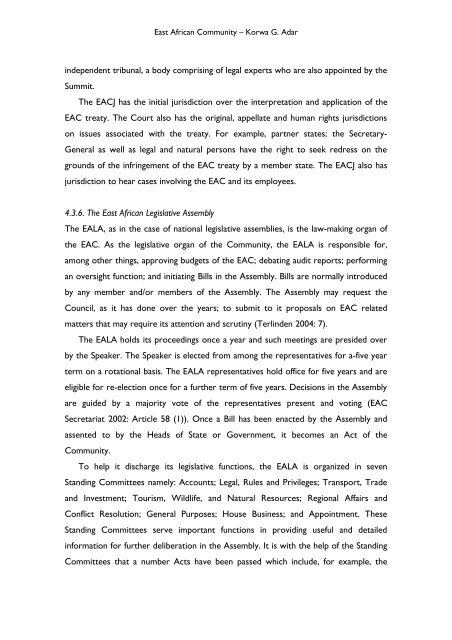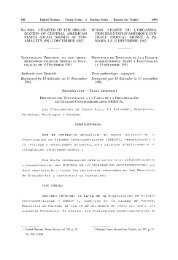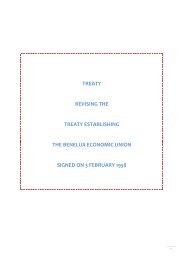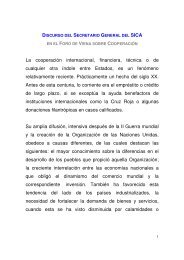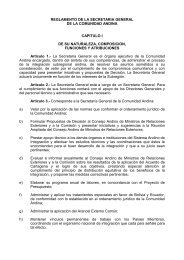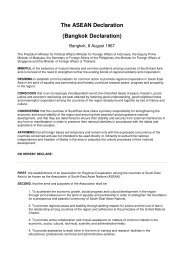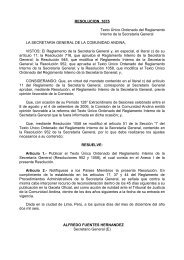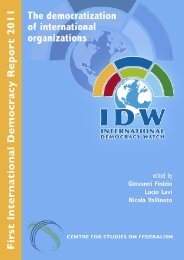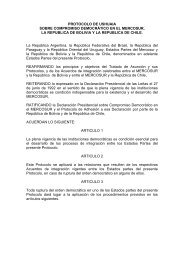Korwa G. Adar - International Democracy Watch
Korwa G. Adar - International Democracy Watch
Korwa G. Adar - International Democracy Watch
You also want an ePaper? Increase the reach of your titles
YUMPU automatically turns print PDFs into web optimized ePapers that Google loves.
East African Community – <strong>Korwa</strong> G. <strong>Adar</strong>independent tribunal, a body comprising of legal experts who are also appointed by theSummit.The EACJ has the initial jurisdiction over the interpretation and application of theEAC treaty. The Court also has the original, appellate and human rights jurisdictionson issues associated with the treaty. For example, partner states; the Secretary-General as well as legal and natural persons have the right to seek redress on thegrounds of the infringement of the EAC treaty by a member state. The EACJ also hasjurisdiction to hear cases involving the EAC and its employees.4.3.6. The East African Legislative AssemblyThe EALA, as in the case of national legislative assemblies, is the law-making organ ofthe EAC. As the legislative organ of the Community, the EALA is responsible for,among other things, approving budgets of the EAC; debating audit reports; performingan oversight function; and initiating Bills in the Assembly. Bills are normally introducedby any member and/or members of the Assembly. The Assembly may request theCouncil, as it has done over the years; to submit to it proposals on EAC relatedmatters that may require its attention and scrutiny (Terlinden 2004: 7).The EALA holds its proceedings once a year and such meetings are presided overby the Speaker. The Speaker is elected from among the representatives for a-five yearterm on a rotational basis. The EALA representatives hold office for five years and areeligible for re-election once for a further term of five years. Decisions in the Assemblyare guided by a majority vote of the representatives present and voting (EACSecretariat 2002: Article 58 (1)). Once a Bill has been enacted by the Assembly andassented to by the Heads of State or Government, it becomes an Act of theCommunity.To help it discharge its legislative functions, the EALA is organized in sevenStanding Committees namely: Accounts; Legal, Rules and Privileges; Transport, Tradeand Investment; Tourism, Wildlife, and Natural Resources; Regional Affairs andConflict Resolution; General Purposes; House Business; and Appointment. TheseStanding Committees serve important functions in providing useful and detailedinformation for further deliberation in the Assembly. It is with the help of the StandingCommittees that a number Acts have been passed which include, for example, the


